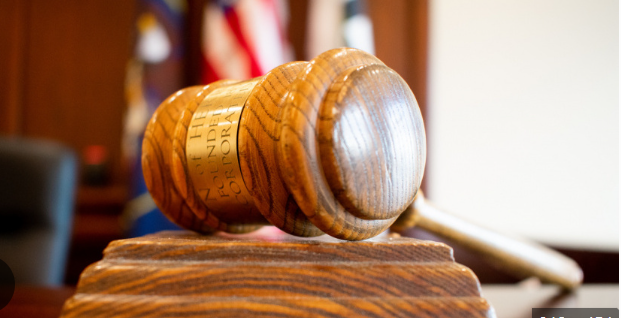As the trial of suspended First Vice President and SPLM-IO leader Riek Machar resumed Monday, a coalition of South Sudanese civil society groups said the proceedings underscore the urgent need for an independent hybrid court to deliver justice for wartime atrocities.
The South Sudan Civil Society Forum, which represents more than 200 civil society groups, said it is closely monitoring the trial at Juba’s Freedom Hall. The case relates to a deadly clash in Nasir in March between government forces and the White Army that left dozens dead and displaced civilians.
While the forum commended the judiciary for allowing public and media access, it said the case highlights the limitations of the national justice system.
“This trial, though significant, should not be mistaken as a substitute for the wider accountability processes,” the group said in a statement seen by Radio Tamazuj.
It called on South Sudan’s government and the African Union Commission to “expedite the establishment and operationalization of the Hybrid Court for South Sudan.”
The proposed court, a key provision of the country’s 2018 peace agreement, is intended to prosecute war crimes and crimes against humanity committed during the civil war. The forum described its establishment as both a “legal obligation and a moral imperative.”
The coalition also called for strict adherence to due process and the protection of all individuals connected to the case, including legal teams, witnesses and journalists.
The forum reiterated that justice is central to sustainable peace and said it would continue to monitor the trial.
In the Special Court on Monday, Presiding Judge James Alala Deng asserted its jurisdiction to hear the case, overruling defense objections. He stated the court was legally established by the chief justice and its jurisdiction does not overlap with the proposed Hybrid Court.
“The Hybrid Court is intended for genocide, war crimes, and crimes against humanity under international law, while this special court is proceeding under national law,” Deng said.
The defense had argued the court lacked authority and that Machar’s immunity had not been lifted. Judge Alala also ordered two defense lawyers to leave the team until they renew their practicing licenses, rejecting their claim that the Bar Association frustrated their renewals.
In opening statements, the prosecution alleged the Nasir incident was “planned, funded, coordinated, and commanded” by SPLM-IO commanders, including co-accused Gabriel Duop Lam and financier Puot Kang.
The prosecution has described the event, which it says left more than 200 people dead, as a “coordinated and command-sanctioned” military operation.
Machar’s lead lawyer, Geri Raimondo, cautioned the court against letting the prosecution become a political tool, urging that the case be grounded in justice and credible evidence.
Speaking during the procedural hearing, Raimondo argued that a prosecutor’s duty is not to secure a conviction but to ensure all evidence is presented fairly.
“A prosecutor represents the state, not the victim, nor a private individual,” Raimondo said, citing the country’s transitional constitution. “His or her duty is not to secure conviction, but to ensure all the evidence is fairly and accurately adduced before this court of law.”
Raimondo stressed that prosecutors are “ministers of justice” who serve the public.
“They are not entitled to act as if they represent private interests,” he told the three-judge bench. “A prosecutor represents the people of South Sudan, not a faction, not a government, and certainly not vengeance.”
He emphasized that evidence must be believable, reliable and acquired legally, stating that prosecutors have an obligation to avoid wrongdoing “for the sake of expediency.”
“Not to satisfy political winds. Not to pacify media pressure. Not to project force where law must stand,” Raimondo said.
The trial was adjourned until Wednesday to allow the prosecution to prepare its witnesses. The case continues amid intense national and international scrutiny.




